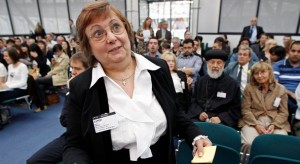By Heba Girgis
Impunity Watch Reporter, Africa
KHARTOUM, Sudan—The Sudanese army and rebel militants clashed late last week on Thursday, September 6, 2012, leaving dozens of people dead and injured. The army noted that it killed thirty-two rebel insurgents who moved in and attacked a small village in the western Darfur area.

Near the South Sudan border, in the village of South Kordofan, forty-five rebels were also killed. These casualty claims, however, have not yet been verified, as there is still restricted access to both the Darfur and South Kordofan regions.
A spokesman of one of the biggest rebel groups called the Justice and Equality Movement noted that his rebel group attacked and killed the army soldiers in order to repulse an attack on the village.
About a year ago, several rebel groups in the two separate states of Sudan and South Sudan, formed an alliance with the goal of toppling President Omar al-Bashir’s regime. It was also a year ago that South Sudan won its independence from Sudan. This split cooled down decades of fighting between the mainly Muslim north, and the Christian south. The division of the country was finally carried out after a 2005 peace deal that finally ended a 22-year civil war. The capital city of Khartoum blames and accuses residents of the South Sudan region of backing these rebel insurgents.
Throughout March and April of this year, Sudan and South Sudan fought along their unmarked borders, which then began to spark the fear of a wider war between the divided countries. This fear led to a United Nations Security Counsel resolution ordering a ceasefire as well as negotiations amongst the African Union.
The latest clashes between the army and the rebel groups comes just as the United States warned the United Nations of a suspected “outright conflict” between the two Sudanese states over a border dispute that has been going on for over a year now. Susan Rice, United States ambassador to the United Nations, was the one to bring this suspicion to the United Nations after a meeting of the Security Council.
One thing that complicates this border struggle even further is that South Sudan has accepted the border roadmap that was proposed by the African Union, while Sudan refuses to do so. An agreement deadline was set for early August on August 2, 2012; however, this deadline failed to produce an agreement between the two sides. The United Nations criticized Khartoum for refusing to undertake the suggestions of a demilitarized zone and border monitoring mechanism that was first proposed by the African Union.
Currently, Sudan and South Sudan are holding talks in Ethiopia in order to discuss a solution regarding border security. Both sides in this dispute will be kept under pressure for the remainder of September in order to set up a deal by their new deadline on September 22, 2012.
For further information, please see:
The Associated Press – Sudan Army Push Repulsed Near Kadugli: Rebels – 9 September 2012
Daily News Egypt – Renewed Clashes Between Army and Rebels in Sudan Leaves Dozens Dead – 9 September 2012
News Day – Dozens Killed in Clashes Between Sudan Army and Rebels – 9 September 2012
BBC News – ‘Dozens Killed’ as Sudan’s Army and Rebels Clash – 8 September 2012
CapitalFM News – Sudan Army, Rebels Clash on Two Fronts – 8 September 2012



